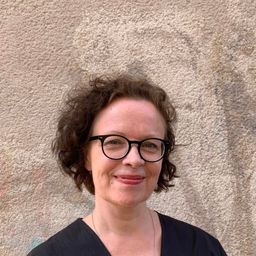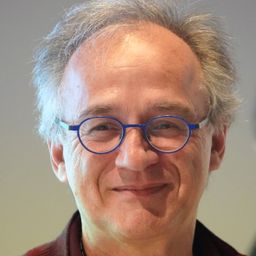
Johanna Björkman is an art historian specializing in architectural history. She received her PhD at the University of Helsinki in May 2019. Her work was entitled The Success of the Forest Industry in Architecture. Architect W. G. Palmqvist cooperation with the companies in the industrial communities in the 1920s and 1930s. The dissertation connected the architecture she researched to the political, economic and cultural contexts of the studied time frame. Björkman has an interest in industrial architecture and was associated with a Nordic-Baltic research group that published the book Industry and modernism: Companies, architecture, and identity in the Nordic and Baltic countries during the high-industrial period (2007).
Björkman works as deputy Head of Environment in the Helsinki City Museum. She has worked with built cultural heritage and conservation questions for over fifteen years in museums and at the Finnish Heritage Agency. Björkman has also trained herself in architectural conservation and completed a one-year post-master’s course at the Royal Institute of Art in Stockholm, Sweden.
Main publications:
- Metsäteollisuuden menestyksen jälki arkkitehtuurissa. Arkkitehti W.G. Palmqvistin ja yhtiöiden yhteistyö tehdasyhdyskunnissa 1920- ja 1930-luvulla. Helsinki: Helsingin yliopisto 2019. [Disseratation: The Success of the Forest Industry in Architecture. - Architect W. G. Palmqvist co-operation with the companies in the industrial communities in the 1920s and 1930s].
- Post-War Modernism in Helsinki City Centre: Heritage or Material for re-use? In Docomomo 14th International conference proceedings 2016. Adaptive reuse, the modern movement towards the future.
- Architects realizing Gösta Serlachius' visions in the industrial community of Mänttä, Kirjassa Industry and Modernism. Companies, Architecture and Identity in the Nordic and Baltic Countries during the High-Industrial Period, toim. Anja Kervanto Nevanlinna. Helsinki: SKS, 2007.
Documents
Sessions in which Johanna Björkman participates
Tuesday 30 August, 2022
Sessions in which Johanna Björkman attends
Sunday 28 August, 2022
Join the conference organisers and TICCIH board members for a welcome cocktail and some festive words of introduction, in the former forge of the École technique de Montréal, founded in 1909, now part of the Université du Québec à Montréal campus.
Monday 29 August, 2022
Industrialization processes have been global from their very beginning. However, their interpretation still tends to be limited to specific locations or regions, and to specific time periods. Regularly, for example, it is stated that the industrial revolution started in Europe, from where it spread to the world, supposedly bringing technological and social progress to „less developed“ countries. Earlier periods of technology and knowledge transfer processes, that were already in place in t...
This session presents case studies and policy reviews that contribute to ongoing debate and international dialogue on the role of planning systems and conservation practices in addressing the challenges of citizen engagement—conserving local interests, place attachments alongside physical remnants of industrial heritage. Over the past half century, we have witnessed the development and changing focuses of urban planning and conservation discourses addressing industrial heritage. Relevant p...
Si la vallée du canal de Lachine a été le berceau de l’industrialisation canadienne, la géographie industrielle métropolitaine ne s’y est pas confinée, peu s’en faut, Outre les grandes concentrations d’entreprises des quartiers centraux, elle est constituée des réseaux infrastructuraux, d’une douzaine de centrales hydroélectriques et des ensembles manufacturiers disséminés dans une quinzaine de petites villes aujourd’hui intégrées dans l’aire métropolitaine. La conférence proposera un surv...
Tuesday 30 August, 2022
This session focuses on company towns from the perspective of urban planning. “Company towns” are here defined as single-enterprise planned communities, usually centered around a single industry, where a company commissions an urban plan, builds housing for its workers, and sets up recreational, commercial, institutional or community facilities. While these are now endangered by a second wave of deindustrialization, we observe that, aside studies or monographs of individual towns that popu...
Wednesday 31 August, 2022
In this lecture, I would like to talk about deindustrialised communities, heritage and memory in the context of right-wing populism. Drawing on studies of memory and heritage, I argue that right-wing populists have cornered the market on talking about the past of deindustrialised communities. They have successfully misrepresented this rich and complex history to fuel rage, resentment, fear and reactionary nostalgia. Indeed, ‘the past’, and in particular the industr...
Thursday 1 September, 2022
From its construction to its restoration, immerse yourself in the now and then of this key Canadian industrial heritage site. A country’s central maritime route, a major inland port, the Canadian Lowell (using hydraulic power), the cradle of industrialization, Smokey Valley (using steam), a manufacturing hotspot, the Lachine Canal is all of this and more. For it is also a national historic site, for which
This lecture will argue that the landscapes of industrial heritage that can be found in different parts of the world are directly related to the place-specific trajectories of deindustrialization. In other words: the different ways in which deindustrialization impacts on local communities has a direct bearing on the emergence of forms of industrial heritage. I will differentialte between deindustrialization paths and related industrial heritage regimes in a) Anglo-...




